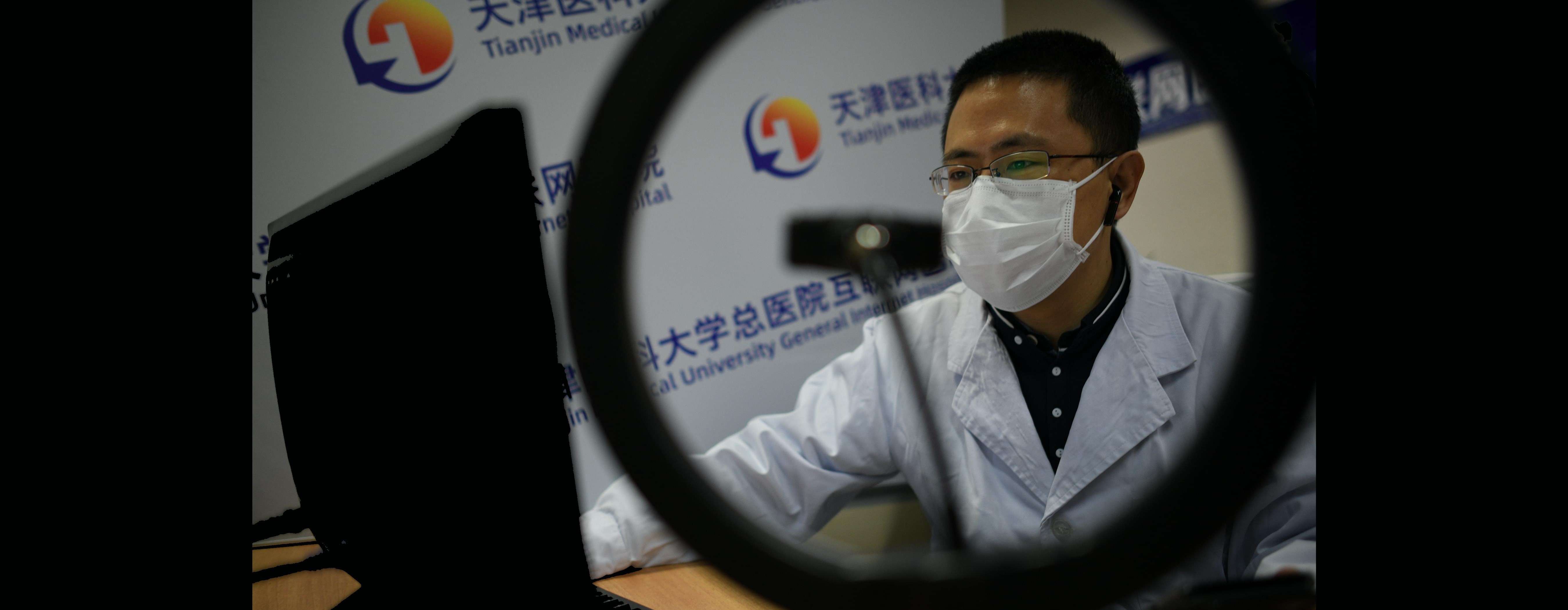

Jul
From a wide range of perspectives, the COVID-19 episode can be considered an “Aha!” moment or, in other words, it taught us a series of (mostly harsh) lessons about the healthcare systems of various countries. The negatives have most definitely been in the spotlight, especially negatives associated with healthcare systems which were perceived as cutting edge, for example the Northern Italian healthcare system (one associated with a very wealthy region) to give a European example, the United States healthcare system and the list could go on and on.
Unfortunately, images of Western doctors who were equipped in a manner one would expect from 3rd world doctors abounded, with elite ultra-trained doctors literally using garbage bags sealed with duct tape on top of their footwear, instructed by the CDC to use bandanas and various workarounds in the absence of masks and the list could go on and on.
On the opposite end of the spectrum, Asian healthcare systems were widely praised, from South Korea and Singapore (two very wealthy nations on a per capita basis and as such, it came as no surprise that their healthcare systems fared well), to… you’ve guessed it, China. Unlike the two previously mentioned examples, the Chinese healthcare system isn’t necessarily considered what one would call cutting edge… on the contrary. In fact, there is a ChinaFund.com article which has been dedicated exclusively to analyzing the Chinese healthcare system in a brutally honest manner, from pros which revolve around acknowledging that it has come a long way to cons which make it clear that it still has severe limitations.
However, as always, our team would strongly recommend exercising restraint and understanding that there is a serious propaganda dimension associated with praising China after the COVID-19 episode. Does this mean there aren’t praiseworthy elements involved? Of course not, it simply means reality tends to be more let’s say nuanced, for reasons such as:
- The fact that many of the problems which popped up across Western healthcare systems were directly related to China and represented supply chain issues rather than anything else. To put it differently, the previously mentioned scenes which described desperate doctors who were adapting to scarcity-oriented realities as best they could were caused by two problems: on the one hand, the fact that the countries in question did not have adequate enough reserves of key essentials (masks, ventilators, protective equipment, etc.) or if you will mistakes made by those in charge in those countries but on the other hand, the fact that affected nations were overly-dependent on Chinese imports (either products or key components) and China failed to deliver at scale… if you will, mistakes made by the countries in question as well as China, which risk costing China quite a bit down the road due to the supply chain complexity reduction trend that risks emerging
- The fact that some of China’s methods with respect to treating COVID-19 patients were questionable at best from a scientific method perspective, for example the fact that Traditional Chinese Medicine or TCM was widely used despite there not being enough in the way of scientific evidence for that approach to make sense. For more information on why China is aggressively “selling” TCM, we would strongly recommend reading the article we have dedicated to Traditional Chinese Medicine by clicking HERE
- The fact that Chinese medical products/solutions have proven to be sub-par in many cases, with vast quantities of anything from masks to testing kits being recalled in jurisdictions such as the European Union due to not being of high enough quality when it comes to protective equipment or accuracy when it comes to tests
- The fact that China’s good results as far as the virus spread containment dimension is concerned are more a function of the aggressive to the point of draconian measures which were imposed (severe lockdowns) than strictly something the healthcare system deserves praise for. To put it differently, China did a remarkable job containing the spread of the virus or preventing rather than having to cure (a highly recommended approach but one which makes it clear that the issue is nuanced)
- The fact that many observers have raised a proverbial eyebrow when reading the numbers provided by Beijing or, to be more blunt, let’s just say the West has taken these numbers with a grain of salt right from the beginning and as time passed and the intelligence services of various nations stepped in, their research process revealed that indeed, it is very likely that China under-stated its numbers for propaganda purposes
- The fact that while China did help other nations with anything from expertise to goodwill packages, it was mostly done for propaganda purposes rather than in an effort to provide consistent aid. For example, despite massive propaganda coming from Beijing about how China has helped Italy, European Union nations have provided much more in the way of aid
Please note that the reasons above are not meant to somehow prove that the healthcare system of China has done a disastrous job, not at all. Our goal was simply making it clear that on the one hand, there are still many areas of concern when it comes to Chinese healthcare and on the other hand, that to a more than significant degree, Chinese COVID-19 success stories revolve around containment more so than the healthcare system, around keeping the spread of the virus in check through unprecedentedly aggressive measures or, if you will, around preventing more so than curing.
It remains to be seen what the future will hold in terms of conclusions. For now, this much is certain: when analyzing the extremely complex implications of the COVID-19 pandemic, there is little room for cheerleading and emotion, brutal honesty combined with reason must prevail because otherwise, we end up with political bias that does little more than cloud our judgment and numb our critical thinking capabilities.
